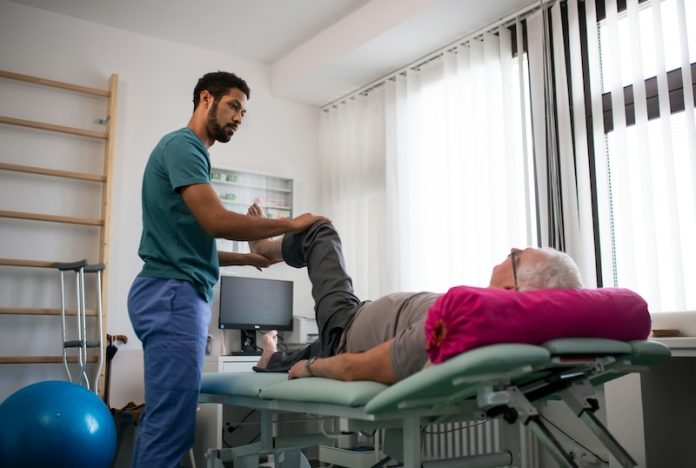
Imagine being woken up in the middle of the night by a sudden, intense pain in your calf—a jolt that drags you out of sleep, feeling as if you’re locked in a wrestling match with an invisible opponent.
This is the experience of nocturnal leg cramps (NLCs), often called “Charley horses,” which affect a large number of adults, especially as they age. These cramps are sudden muscle spasms that can be painful enough to disrupt sleep.
About 50-60% of adults experience NLCs at some point, and for around 20% of them, the cramps are severe enough to cause sleepless nights and lead them to seek medical advice.
Until now, treatment options for NLCs have been limited and often come with unwanted side effects. However, researchers at the Third People’s Hospital of Chengdu in China may have found a promising option for reducing the frequency and intensity of these cramps: vitamin K2 supplements.
In a recent study published in JAMA Internal Medicine, they tested whether vitamin K2 could reduce the painful episodes of NLCs without causing side effects.
The study involved 199 participants aged 65 and older, each of whom had experienced at least two documented cases of NLCs during a two-week screening period.
The participants were randomly divided into two groups: one group took a daily 180-microgram dose of vitamin K2 (in the form of menaquinone-7), while the other group took a placebo.
This setup, where neither the participants nor the researchers knew who was receiving the actual supplement, helps ensure that any effects observed are due to the vitamin K2 rather than psychological expectations.
Before the eight-week trial began, participants in both groups reported a similar number of cramps each week—around 2.6 to 2.7 episodes on average. But over the course of the study, those taking vitamin K2 saw a noticeable reduction in cramp frequency, dropping to an average of 0.96 cramps per week.
By contrast, those in the placebo group experienced an average of 3.63 cramps per week. This difference—2.67 fewer cramps per week in the vitamin K2 group—was not only significant but became evident as early as the first week of the trial.
In addition to reducing the frequency of cramps, vitamin K2 also seemed to make them less painful. Participants rated their cramp severity on a scale of 1 to 10, and those in the vitamin K2 group saw a drop of 2.55 points, while those in the placebo group only reported a 1.24-point decrease.
Furthermore, the duration of each cramp episode shortened slightly. In the vitamin K2 group, cramps lasted an average of 0.90 minutes less, compared to a 0.32-minute reduction in the placebo group.
An important point in favor of vitamin K2 as a treatment option is that participants didn’t report any negative side effects, a finding that’s especially significant given that many existing treatments for muscle cramps come with a range of unpleasant or potentially harmful effects.
Given the positive results, the researchers recommend further studies to confirm vitamin K2’s benefits for those who suffer from frequent or severe leg cramps.
They also suggest investigating whether vitamin K2 might improve overall sleep quality and quality of life, which are often impacted by recurring nocturnal cramps.
This study’s findings offer a new perspective on managing nocturnal leg cramps for older adults, showing that vitamin K2 may be a safe and effective way to reduce the frequency and severity of these painful muscle contractions.
If you care about nutrition, please read studies that whole grain foods could help increase longevity, and vitamin D supplements strongly reduce cancer death.
For more information about nutrition, please see recent studies about natural coconut sugar that could help reduce blood pressure and artery stiffness, and whey and soy protein may reduce inflammation in older people.
The research findings can be found in JAMA Internal Medicine.
Copyright © 2024 Knowridge Science Report. All rights reserved.



